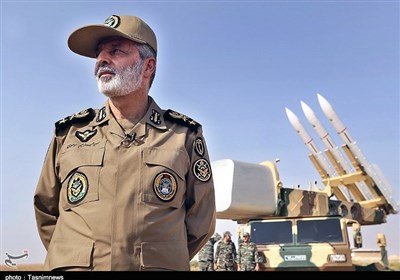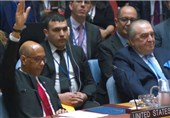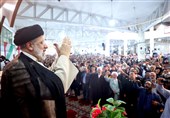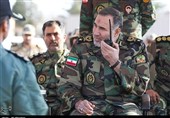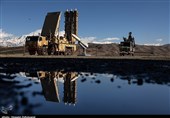Zarif, Ashton to Discuss Procedures of New Round of Geneva Talks
TEHRAN (Tasnim) – Iran’s top negotiator, Mohammad Javad Zarif, and the EU foreign policy chief, Catherine Ashton, who represents the six world powers in talks with Iran, will meet in Geneva later today for necessary plannings about the new round of talks between the two sides.
Iran’s team of negotiators, led by Foreign Minister Zarif, arrived in Geneva last evening and has been stationed in Intercontinental Hotel.
Iran’s negotiators plan to have an internal meeting this morning for consultations and coordination as well as discussing the latest details for talks.
Later, EU’s Ashton will host Iranian negotiators at the UN Headquarters in Geneva.
According to Tasnim dispatches, during the meeting the two sides will review scheduled programs for the talks and set the framework for the upcoming meetings.
At the end of the meeting, the Iranian team will attend a luncheon with the European Union foreign policy chief and the formal meeting between Iran and G5+1 (the five permanent UN Security Council members plus Germany) is likely to start this afternoon.
The team of Iranian negotiators includes Deputy Foreign Minister for Legal and International Affairs Seyed Abbas Araqchi, Deputy Foreign Minister for European and American Affairs Majid Takht Ravanchi, Foreign Ministry's Director-General for the Economic and Specialized International Affairs Hamid Ba'eedinejad, Foreign Minister's Legal Adviser Davoud Mohammadnia, and Mohammad Amiri from the Atomic Energy Organization of Iran.
During the previous round of talks between Tehran and the six major world powers earlier this month, the two sides managed to narrow their differences on Iran’s peaceful nuclear program, though there were hitches that stopped them from reaching an interim deal at the end of the talks.
In remarks ahead of the new round of nuclear negotiations, Iranian President Hassan Rouhani said on Monday that the latest round of talks had made good progress, but added that unjustified demands could obstruct the path to a win-win agreement on Iran’s nuclear program.
“Good progress had been made in the recent talks (between Iran and the G5+1), but everybody should notice that excessive demands could complicate the process towards a win-win agreement,” Rouhani said in telephone conversation with Russia’s President Vladimir Putin on November 18.
And in relevant remarks, Zarif had announced on November 15 that any possible nuclear deal should be palatable to Iran and recognize the undeniable rights of the Iranian nation.
“The point is that not any kind of agreement will have any chance to succeed if it fails to take into account Iran’s consent, does not recognize the Iranian people’s rights and is not based on mutual respect,” the foreign minister said.
Zarif has also said Tehran expects the six major world powers to “respect” its right to enrich uranium based on the regulations of the Non-Proliferation Treaty (NPT).
“Iran enrichment right has no need to be recognized because it is an indivisible right based on the NPT. What we expect is respect for the components of Iran's right,” Zarif said on Sunday.
The top Iranian diplomat stressed that enrichment is a “non-negotiable” right and urged all countries to respect it.
While in Rome on Tuesday, Zarif said he sees “every possibility for success” of the forthcoming nuclear talks between Iran and the six world powers.
“I think there is every possibility for success of these talks, provided that the two sides engage in these discussions with good faith and with the political will to resolve the problem,” Zarif said at a joint press conference with his Italian counterpart Emma Bonino.

